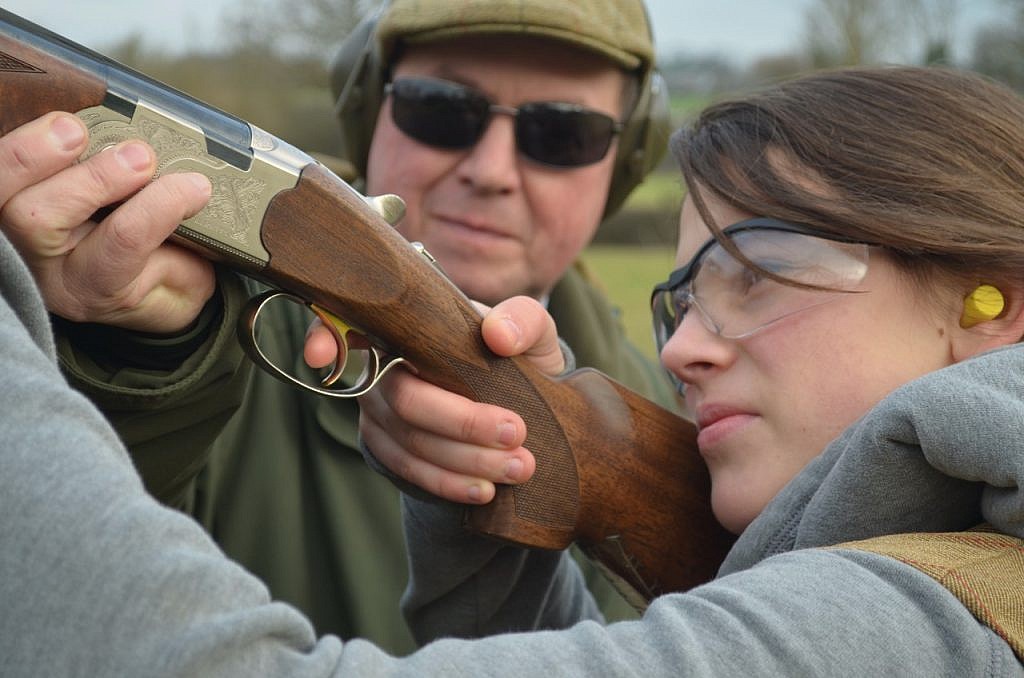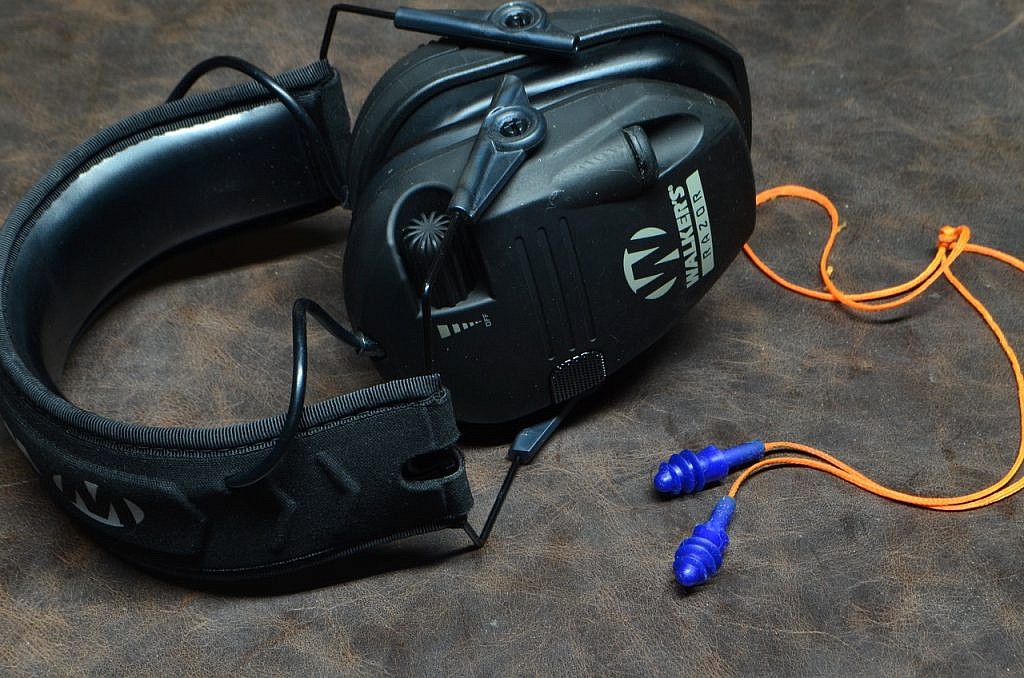
by David E. Petzal
A gunsmith friend of mine who specializes in tactical and competition rifles says that applications to the BATF for silencers, which formerly took months or years, are now going through quickly. This is very good news for shooters who still have their hearing, and would like to keep it.
Silencers, which is the older and less accurate term for suppressors, were included in the National Firearms Act of 1934, in which the government decreed that full-auto weapons such as BARs, Thompson submachine guns, et al, were prohibited unless you got a license from the Treasury Department. The Act itself was the result of a national panic over the transgressions of John Dillinger, Pretty Boy Floyd, Machine Gun Kelly, Bonnie and Clyde, and other entrepreneurs, and ignored the fact that when these folks needed guns, they mostly stole them from National Guard armories.
Suppressors have been around since 1902. They were invented by Hiram Percy Maxim, son of the man who invented the first successful machine gun. Silencers don’t silence a firearm; there is still some report. Instead, they suppress most of the sound. The device resembles an elongated tin can and screws on the muzzle. The can is filled with baffles which absorb and break up sound waves.

Suppressors are very effective. The U.S. Army has decreed that henceforth, its standard infantry weapon, the M4 carbine, will come equipped with them, so the deafening racket of close-quarters combat may one day become a thing of the past. Soldiers will still be killed, but they’ll die with their ears intact.
Which brings us to hearing, loss of. Here are two things to keep foremost in mind on this subject:
1. Your hearing is much easier to lose than you think.
2. Once it’s gone, you’re never going to get it back as it was.
There are four stages of hearing loss:
Mild. You have some trouble understanding people some of the time.
Moderate. You have trouble understanding people a good deal of the time, and there are a lot of sounds you can’t hear.
Severe: Without hearing aids you can’t understand any of the speech you hear, and just about all sounds except for major explosions. Even with hearing aids, you still have a lot of difficulty.
Profound: You’re stone deaf, and there’s hardly anything that can be done to help.
I’m in the “severe” category. I’ve worn hearing aids since the mid-1990s and still have a lot of trouble. Of the speakers I hear in the course of a day, I can understand maybe a quarter, and hardly a day goes by when I don’t have to tell someone to 1) stop jabbering, 2) stop mumbling, or 3) learn to speak actual English.
I have no one to blame but me. When I began shooting in the mid 1950s, no one wore hearing protection. Our ears rang and we ignored it. I didn’t start using headphones until the 1960s. Over more than 60 years, I’ve done a ton of shooting and, considering the amount of gunfire I’ve been exposed to, it’s probably a miracle I have any hearing left at all.
Gunfire is very, very bad for your hearing. Sustained noise of 70 dB (decibels) will damage it over time. Noise of 120 dB does immediate damage. The lowly .22 rimfire puts out 140 dB. Centerfire rifles and the more insane handguns, such as the .454 Casull, reach 170. The only thing that equals this is a jet engine.
When this kind of noise hits your middle ear, it encounters minute hairs called cilia. These little fellows monitor your sense of balance and transmit sound to the brain. When the shockwave from your .30/378 hits them, they die and do not regenerate. If you’d like a demonstration, get an old radio with an extending antenna and tear it out of the radio. Then try to tune something in. This is your hearing without cilia.
Hearing aids act in place of the cilia, or try to. They collect sound and send it to the brain. Hearing aids are much better than they used to be because they used to be terrible. In the 1990s, when many of my contemporaries went deaf and bought them, they discarded them within a few weeks.
If you think you need hearing aids, see an audiologist. He (or she) will tell you how deaf you are, and in what range, and what you should buy. No hearing aid will restore your natural hearing, and if an audiologist tells you they can, find someone else. There are now inexpensive ($1,000 or so) hearing aids that can do some good if you haven’t screwed yourself too badly, but the average price for a pair that will really help is $4,000. Mine cost more than that. I had no choice.
If you don’t want to go down this road, take this advice: Earplugs are next to worthless when used by themselves. (Editor’s note: Unless they are good ones, properly worn.) Earmuffs work, and you want a set rated for 30dB or above. Combine them with earplugs and you have something. If you shoot at a range, try to find one that’s not covered. Roofs keep the rain and snow off, but they also reflect sound and accelerate the destruction of your ears. Avoid muzzle brakes. Better kicked than deafened. Eschew the philosophy, when hunting, that “just a few shots won’t do any damage.”
Here are the side effects that come with not being able to hear.
Before you grow noticeably deaf, your ears will start ringing, and they will not stop for the rest of your life. This is called tinnitus. I’ve seen a great many so-called “cures” for it, but as far as I know, they may help, but they won’t get rid of it. The good news is, you’ll grow so used to the ringing that after a while you won’t even notice it.
I wrote that that cilia help control your balance. Without them you may find yourself having dizzy spells, usually when you’re at the top of a ladder or when a cop has asked you to walk along the yellow line.
You’ll never again hear music as it actually sounds.
Wearing hearing aids produces ear infections and a maddening itch. This is because ear canals were not designed to be blocked by a hunk of expensive plastic and circuitry.
You lose the ability to tolerate loud noises. This phenomenon is called “recruitment,” and means that your ears are always working extra-hard to pull in sound. So when a fire truck passes with its siren going, you’ll hear it much louder than a normal person does, and fall to the ground in agony, foaming at the mouth.
If you’re deaf enough for long enough, your brain will lose the ability to recognize words, which it developed at the age of six months. You’ll be able to hear someone clearly but unable to comprehend what they’re saying. That’s the bad news. The good news is, you’re probably not missing anything.
You’ll be unable to understand anyone unless they are speaking directly to you, and not at a 90 degree angle, and not from around a corner. Trying to get your familiars to remember this is a fool’s errand.
You won’t be able to understand people who yammer, or mumble, or speak softly, or speak with a heavy accent, or speak with a clenched jaw. This is a lot of people. In fact, it’s most people.
Helen Keller, who was born blind and deaf, said that of the two handicaps deafness is the worse because it isolates you from people. When it dawns on you that any social interaction is going to be an exercise in futility, you’ll avoid social interactions. When people find how difficult it is to speak with you, they’ll stop speaking to you.
You’ll grow very short with people you can’t understand, and your temper generally will become much worse.
And there’s only one thing you can do about all of this.
If you can still hear, stop taking it for granted.
Dave Petzal often misses the Army, which contained a great many tin-eared people, and encouraged yelling on all occasions.
